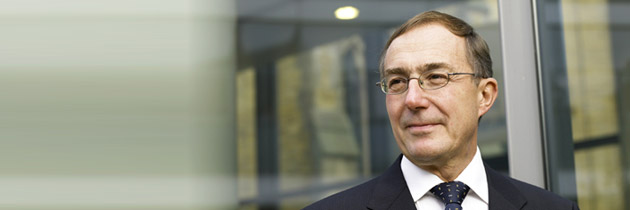
Our university has come a long way in a few years. Last October, reflecting upon the enormous progress we have made, I ventured that, at this rate, we would achieve our aim of joining the world's top 50 universities ahead of schedule.
A year on, the world feels a very different place. External circumstances over which we have no control have ushered in the most turbulent era for the public sector in modern times, and much as I would like to believe that higher education is a special case, we will not be protected from the fallout.
One of the most frightening statistics to emerge from the financial turmoil is the amount of money the UK will spend on servicing the national debt; set to rise from £27 billion to more than £62 billion a year - or about three times as much as this country spends on higher education. So while the future might be uncertain, major (double digit) cuts in public expenditure are not; the only issue being how much, and how soon.
Does this mean we have to change our strategy and abandon our world class ambitions? Absolutely not - quite the reverse, in fact. Our strategy and values - and the way in which we worked together to articulate them - have provided us with a sense of purpose, shared objectives and a renewed pride and self-confidence. They continue to provide the framework for our endeavours and our continuing success. There is no doubt that we would be in a much worse position today had we not adopted a clear direction four years ago, so it makes no sense at all to renounce our collective focus and commitment in the face of adversity.
But funding cuts of potentially tens of millions of pounds mean we will have to be prepared to deal with upheaval, embrace change, make the best of these new circumstances and, even, find opportunity in hard times. We cannot waste energy pining for what might have been. We need to protect the University - and the jobs of our staff - and be as creative as possible in devising our response.
While efficiency and effectiveness have always been central to our strategy (as 'enablers'), reorganisation was never a given. We now need, however, to ask the simple question - if we were organised differently, could we do the same amount of work in a more efficient or less costly way? At least one of our competitors has a single admissions process, and I am told that academics' initial scepticism was swept away when the administrative burden on them lifted and substantial savings were made by eliminating duplicating processes. For historic reasons, as well as size, we have more faculties than most of our peers. Some deans have begun consulting each other on shared approaches, and this is very welcome; it is best for change to be guided by those most closely affected than to be imposed.
There's an instructive story (from a reliable source) about two groups - business people and academics - asked to find 10 per cent savings in the same organisation. The academics spent a couple of days with flip charts and post-its, and concluded that the best approach was a 10 per cent cut across the board. The industrialists' meeting was much briefer; they, in contrast, decided to stop doing some things, cut others by 5 per cent or by 40 per cent, and to invest in several key areas to help them through the difficulty; an approach which was clearly strategic.
While we will continue making the case to government about the importance of investing in our universities to safeguard the nation's future and protect our international competitiveness, we must prepare for the worst. This is why we announced last week that we have decided to plan for a £35 million reduction in our cost base from 2010 onwards. As we make choices, we will be guided as ever by our strategy, so we will protect above all academic excellence, the integration of learning, teaching and research, our impact and turning our students into great graduates.
The 'refreshed' strategy map you'll find in this Reporter restates our objectives even more clearly (without changing them), and now includes our staff in the list of 'stakeholders'. We're holding lunchtime sessions to which everyone is welcome to discuss the new map and any related issue.
Let's not lose sight of the enormous progress we've made; in research performance and income, in recruitment (of both staff and students) and in a campus which has never looked lovelier nor livelier (and has never been safer). We no longer have a financial 'cushion' to protect us, but our underlying position is fundamentally sound. League tables are characterised by their volatility, but our trajectory is positive; we're back in the THE world top 100 - just - and up another two places in the Times league table. While reaching our top 50 target ahead of schedule might feel optimistic, I remain certain it's within our grasp if we keep our collective eye on the prize.
John Fitzgerald Kennedy, never short of a good aphorism, put it thus: "Change is the law of life. Those that look only to the past and present will surely miss the future."
Send your story or comments on the For Staff website to the Communications team, email internalcomms@leeds.ac.uk or call extension 38562